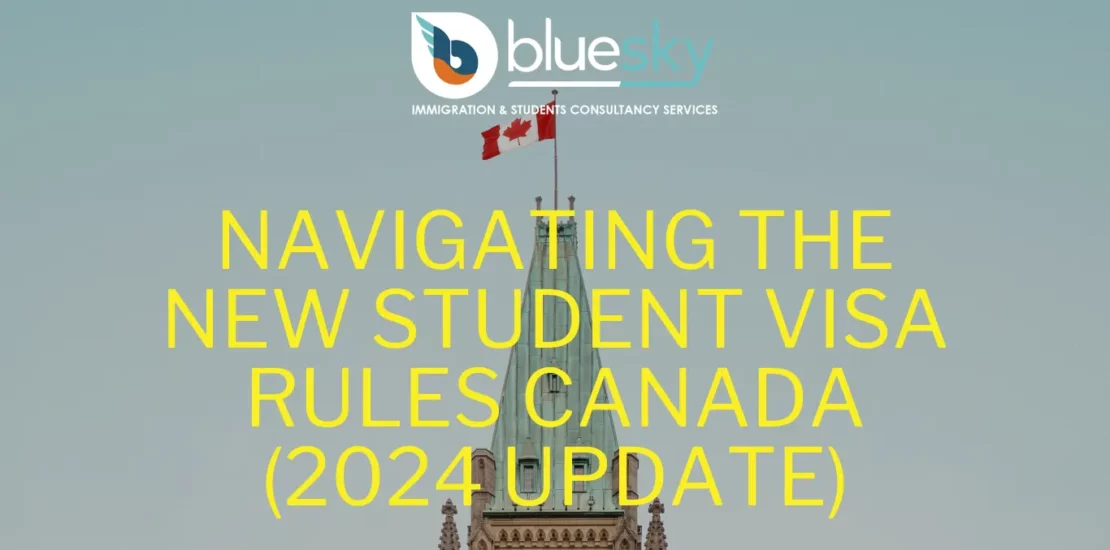New Student Visa Rules Explained
- February 1, 2024
- Posted by: Sandeep
- Categories: Canada, news

Canada Welcomes You! New Student Visa Rules Explained (Increased Funds & More)
As of today, February 1st, 2024, here’s what we know about Canada’s new student visa rules:
Increased financial requirements:
- The most significant change is the increased cost-of-living requirement. Single applicants now need to show CAN$20,635 in available funds, more than double the previous amount. This reflects concerns about student vulnerability and ensures they have sufficient resources.
- This change applies to new study permit applications received on or after January 1st, 2024.
Temporary measures:
- The temporary waiver on the 20-hour off-campus work limit has been extended until April 30th, 2024. This allows international students enrolled in Canada to work more to support themselves.
- However, extensions of Post-Graduation Work Permits (PGWPs) will soon be phased out. This may impact graduates seeking to gain work experience in Canada after their studies.
Other noteworthy changes:
- Study permit applications now require an attestation letter from a province or territory, starting January 22nd, 2024. This aims to manage the number of international students admitted in each region.
- Designated Learning Institutions (DLIs) must now confirm all letters of acceptance submitted by non-Canadian applicants directly with IRCC, effective December 1st, 2023. This enhances verification and application integrity.
- Canada plans to pilot programs in 2024 to attract a wider range of international students from underrepresented groups.
Important notes:
- These changes are relatively new, and further details or adjustments may occur.
- It’s crucial to refer to official government sources like Canada.ca for the latest information and application procedures.
I hope this summary helps! Do you have any specific questions about Canada’s new student visa rules?
Contact us
Disclaimer:
The information contained on this blog post is for informational purposes only and is not intended to be a substitute for professional advice. And the information provided on this blog should not be construed as professional advice.
While I strive to provide accurate and up-to-date information, I cannot guarantee that all information is complete or error-free. You should always consult with a qualified professional before making any decisions based on the information contained on this blog post.
